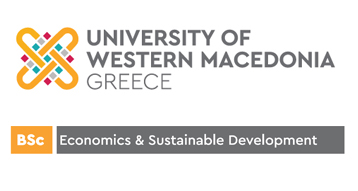Learning outcomes:
The irruption of ecology in the last part of the twentieth century is a major shift in scientific paradigms, particularly on how humans view, understand, and interact with nature. Sustainable development refers to the economic development that is planned and implemented taking into account the protection of the environment and sustainability. Sustainability is guided by the maximum possible acquisition of goods from the environment, but without interrupting the natural production of these products in sufficient quantity in the future. Sustainable development presupposes the development of the productive structures of the economy along with the infrastructure for a sensitive attitude towards the natural environment and ecological problems (as defined by traditional sciences such as geography). Sustainability implies that natural resources are being exploited at a slower rate than the rate at which they are being renewed, otherwise environmental degradation will take place. Theoretically, the long-term effect of environmental degradation is the inability of the earth's ecosystem to support human life (ecological crisis).

